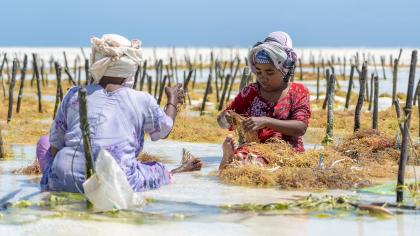
Although trade can contribute to development, many developing countries face challenges to make sure trade contributes to development. This is because they have limited capacity to analyze the relationship between trade, productive capacity and employment, assess policy options and formulate and implement adequate national trade policy frameworks. This hampers their ability to make full use of the transformative power of trade for development.
The aim of UNCTAD work in this area is to contribute to the (re)formulation and implementation of national trade policy regimes according a country's own development priorities and needs. Research and training activities provide the tools to policymakers in developing countries and transition economies that enable them to set their own priorities, make impact assessments of different policy options and devise the best actions, including at the sectoral level.

The processed food trade matrix looks closely at food imports and exports at different processing levels and various country groups.
7 Mar 2024
The UN Trade Forum 2023 will highlight how developing countries can use trade to tackle global challenges including protecting the ocean, reducing digital and gender inequalities, and building more resilient economies.
2 May 2023 Fair trade enterprises spread benefits through value chainsGovernments urged to promote businesses that practice fair trade to help tackle inequality, end poverty and save our planet.